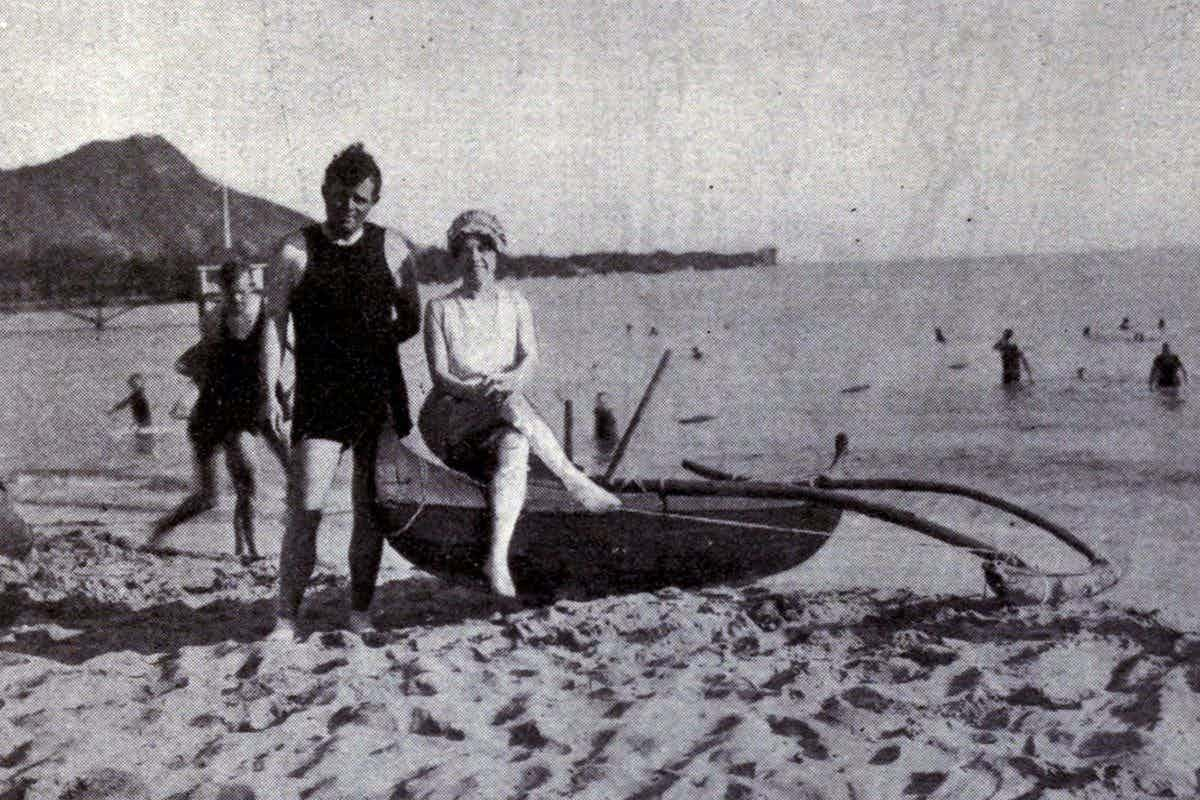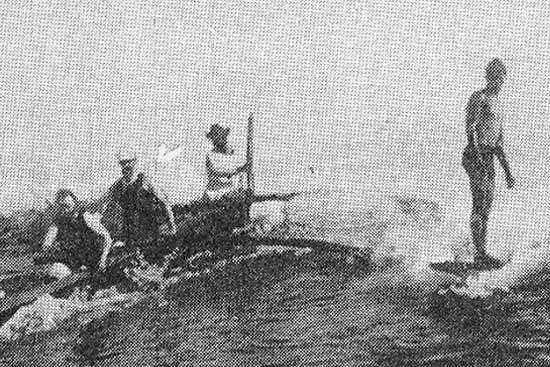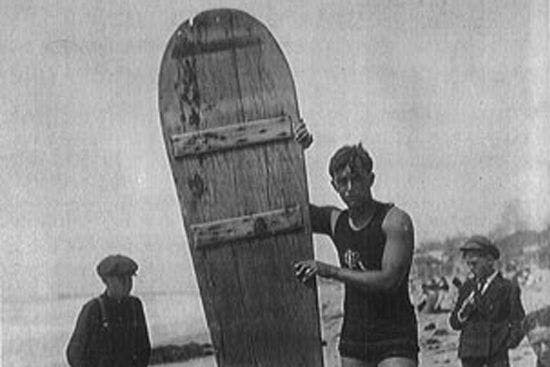People, Surf cultureSurfing: A Royal Sport

Words by Mat Arney, Images courtesy of The Jack London Society.
“Ah, delicious moment when I felt that breaker grip and fling me. On I dashed, a hundred and fifty feet, and subsided with the breaker on the sand. From that moment I was lost.”
The act of riding waves had been practiced on the Hawaiian Islands for an untold number of years before Captain Cook became the first European to formally “discover” the island chain in January 1778. With first contact came the first written account of surfing, backed up almost a hundred years later by iconic author Mark Twain and, following him, Jack London. The fact that two of America’s most iconic writers from the 19th and early 20th century visited Hawaii independently and were captivated enough by what they saw to give “surf-riding” a try led not only to the first documentary accounts of surfing but also to the spread and growth of surfing beyond it’s birthplace of Hawaii.
London arrived in Hawaii in 1907 on his beleaguered schooner Snark, the first stop-off on a trans-Pacific voyage. He was at that time already a famed author of adventure novels and was writing for the exploding magazine fiction market, and had ploughed much of his personal fortune into funding a planned round-the-world voyage. During his stay on Oahu he quickly became enchanted by the “royal sport for the natural kings of earth” when he witnessed a local Hawaiian stand-up surfing at Waikiki, and resolved to emulate his achievements despite having developed a healthy respect for the power of the waves.
Image courtesy of The Jack London Society.

“Go to. Strip off your clothes that are a nuisance in this mellow clime. Get in and wrestle with the sea; wing your heels with the skill and power that reside in you; bit the sea’s breakers, master them, and ride upon their backs as a king should.”
London first attempted to imitate the actions of a group of local children riding prone in the whitewater and in doing so, “failed utterly”:
“We would all leap on our boards in front of a good breaker. Away our feet would churn like the stern-wheels of river steamboats, and away the little rascals would scoot while I remained in disgrace behind.”
London was quickly put back on track by a fellow globetrotting journalist whom he had met in Hawaii, Alexander Hume Ford. Ford had spent the past month mastering surfing and lost no time in sharing his full-size, 75lb, surfboard with London and tutoring him in the intricacies of catching waves. On their second day surfing together Ford took his new student “out into the blue water” to where the waves broke on the reefs of Waikiki, and here they rode waves alongside beach boy George Freeth.
Image courtesy of The Jack London Society.

“Shaking the water from my eyes as I emerged from one wave and peering ahead to see what the next one looked like, I saw him tearing in on the back of it, standing upright on his board, carelessly poised, a young god bronzed with sunburn.”
After London’s descriptions of surfing brought it to the attention of the American public, Freeth accepted an invitation to travel to California to put on demonstrations of surf-riding. Ford meanwhile channeled his love of surfing into petitioning the trustees of the Queen Emma Estate to form the Hawaiian Outrigger Canoe Club on a stretch of beach next to Waikiki’s Moana Hotel. When London returned to Hawaii in 1915 the club had grown to 1200 members and there were regular competitions with the native Hawaiian Hui Nalu surf club, further perpetuating the rebirth in popularity of wave-riding in Hawaii.
It was these three men, London, Ford and Freeth, who are often credited with reigniting the embers of surfing in Hawaii before Duke Paoa Kahanamoku spread it to the rest of the world. Jack London’s status as a celebrity author meant that his encounter with surfing was broadcast in the magazines and books read by so many, and now stands as an important historical account of surfing in Hawaii at the beginning of the last century.
“A Royal Sport” is a chapter in London’s 1911 book, The Cruise of the Snark and was first published in 1907 in The Lady’s Home Companion.